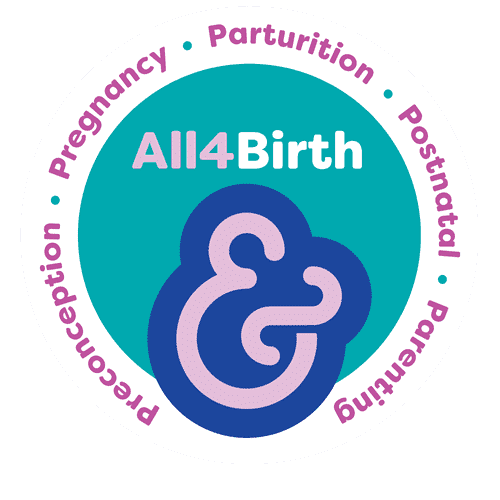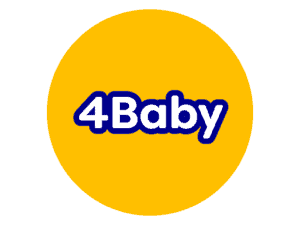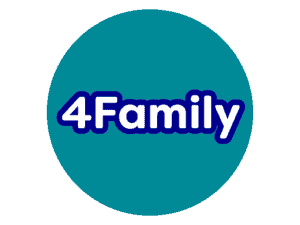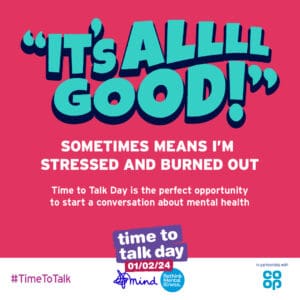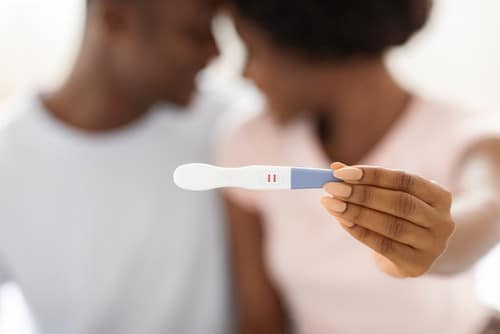Abbie Tomson
Midwife BSc MSc, Yoga Teacher
@enevlorel
Summary
Preparing for parenthood involves many important steps, and one crucial aspect is ensuring the health of both parents before conception. Among these considerations, quitting smoking is a vital measure for prospective parents. Not only does it increase fertility and promote a healthier pregnancy, but it also sets the stage for a healthier environment for the future child. Understanding the benefits and accessing available resources for smoking cessation can greatly support individuals in this journey toward parenthood.
Benefits of Quitting Smoking Before Conception:
Increased Fertility: 1
Smoking can significantly impact fertility in both men and women. In women, it disrupts hormone levels and affects the function of the fallopian tubes, making conception more difficult. Similarly, smoking in men can lead to reduced sperm count, motility, and morphology, hindering successful fertilisation. Quitting smoking before conception can improve these factors and enhance fertility.
Healthy Pregnancy: 2
Smoking during pregnancy poses serious risks to both the mother and the baby. It increases the chances of miscarriage, ectopic pregnancy, premature birth, low birth weight, and birth defects. By quitting smoking before conceiving, individuals can mitigate these risks and increase the likelihood of a healthy pregnancy with positive outcomes for both mother and child.
Secondhand Smoke Exposure:
Even if only one partner smokes, exposure to secondhand smoke can harm the other partner’s fertility and compromise the health of the developing fetus. Quitting smoking benefits not only the smoker but also their partner and future child by eliminating exposure to harmful secondhand smoke.
Overall Health:
Quitting smoking yields numerous health benefits beyond fertility and pregnancy. It reduces the risk of cardiovascular disease, respiratory issues, and various types of cancer. By improving overall health, individuals create a conducive environment for conception and pregnancy, promoting their well-being and that of their future child.
Resources for Smoking Cessation:
National Health Service (NHS):
The NHS offers comprehensive smoking cessation services, including counselling, support groups, and access to nicotine replacement therapies (NRT) like patches, gum, and inhalers. These services are accessible through general practitioners (GPs) or local stop-smoking services, providing personalized support tailored to individual needs.
Quitline:
The NHS Smokefree helpline provides free support and advice to those seeking to quit smoking. Trained advisors offer guidance on quitting strategies and available resources, empowering smokers to take positive steps toward a smoke-free life.
Quit Smoking Apps:
Several smartphone apps are available to provide personalized support, motivation, and tracking tools for quitting smoking. Endorsed by healthcare organisations, these apps offer evidence-based strategies and resources to assist individuals in quitting anytime, anywhere.
Community Support Groups:
Many local communities and organizations host support groups or smoking cessation classes where individuals can connect with peers facing similar challenges. These groups offer invaluable peer support and accountability, fostering community and empowerment throughout the quitting process.
National No Smoking Day in the UK:
National No Smoking Day in the UK is an annual event aimed at raising awareness about the health risks associated with smoking and encouraging smokers to quit. It typically takes place on the second Wednesday of March each year. The day is a focal point for various campaigns, initiatives, and events to support individuals quitting smoking and promoting smoke-free lifestyles.
Purpose:
National No Smoking Day serves as a reminder of the dangers of smoking and the benefits of quitting for both smokers and those exposed to secondhand smoke. It aims to motivate smokers to make a positive change by quitting and providing them with the necessary resources and support.
Campaigns and Initiatives:
On National No Smoking Day, numerous UK campaigns and initiatives are launched to support smokers’ quitting journey. These may include educational campaigns highlighting the health risks of smoking, public awareness events, and promotional activities promoting smoking cessation services and resources.
Support Services:
National No Smoking Day provides an opportunity for smokers to access a wide range of support services to help them quit smoking. These services may include NHS smoking cessation clinics, helplines, online resources, and community support groups. Smokers are encouraged to use these services to receive personalized support and guidance tailored to their needs.
Promotional Activities:
Various promotional activities are organized on National No Smoking Day to encourage smokers to quit and raise awareness about the benefits of a smoke-free lifestyle. These activities may include advertising campaigns, social media campaigns, workplace initiatives, and public events such as sponsored walks or runs.
Long-Term Impact:
While National No Smoking Day serves as a focal point for smoking cessation efforts, its impact extends beyond a single day. The awareness raised and support provided on this day can inspire smokers to make long-term changes and quit smoking for good. It also helps foster a smoking cessation culture and promote healthier lifestyles in communities across the UK.
Conclusion:
Quitting smoking before trying to conceive is a crucial step toward ensuring a healthy pregnancy and promoting overall well-being for both parents and future children. By accessing available resources and support services, individuals can increase their chances of successfully quitting smoking and embark on their journey to parenthood with confidence and vitality. Investing in a smoke-free lifestyle benefits the individual and lays the foundation for a healthier family and a brighter future.
Links to other resources
 Websites
Websites
- NHS Smokefree: This website is a comprehensive resource the UK’s National Health Service (NHS) provides to support individuals quitting smoking. It offers personalised quit plans, practical tips, information about smoking cessation medications, and access to free support services such as quit coaches and online forums.
- NHS Smokefree Pregnancy: The NHS Smokefree website offers a dedicated section for pregnant individuals who want to quit smoking. It provides information about the risks of smoking during pregnancy, the benefits of quitting, and practical tips for quitting. The website also offers access to free support services, including quit coaches and local stop-smoking services tailored to pregnant individuals.
- Quit.org.uk: This online platform managed by Action on Smoking and Health (ASH) in the UK offers practical advice and support for quitting smoking. It features quit-smoking guides, tools for tracking progress, and information about local stop-smoking services.
- Quitline: The website provides information and resources for quitting smoking in the UK. It offers access to telephone counselling services, personalized quit plans, and guidance on using nicotine replacement therapy (NRT) and other quitting aids.
- Smokefree Community: Smokefree Community is a website run by Smokefree Action that provides information and resources to support smoking cessation efforts in the UK. It features news, research updates, and practical tools for individuals and organizations working to reduce smoking prevalence.
- Quit Smoking Community: This website offers information and support for those looking to quit smoking in the UK. It provides articles, guides, and community forums where individuals can connect with others on their quitting journey.
- Local Stop-Smoking Services: Many local authorities in the UK offer stop-smoking services specifically tailored to pregnant individuals. These services may include one-on-one support from trained advisors, group support sessions, and access to nicotine replacement therapy (NRT) under the guidance of a healthcare professional. Pregnant individuals can ask their midwife or healthcare provider for information about local stop-smoking services.
- Healthy Start Vouchers: Pregnant individuals who receive certain benefits in the UK may be eligible for Healthy Start vouchers, which can be used to purchase nutritious food and vitamins. The Healthy Start program also offers support and information on quitting smoking during pregnancy through its website and helpline.
- Tommy’s: Tommy’s is a charity organization that provides support and information on pregnancy-related issues. Their website offers advice on quitting smoking during pregnancy, including the risks of smoking, tips for quitting, and support options available. They also offer a helpline for individuals seeking personalised support and guidance.
Apps:
- Baby Buddy App: Baby Buddy is a free mobile app developed by Best Beginnings, a charity dedicated to supporting parents during pregnancy and early parenthood. The app offers evidence-based information and support on various topics, including quitting smoking during pregnancy. It provides personalized support plans, tips for managing cravings, and access to a supportive community of other parents.
- NHS Smokefree** (iOS, Android): Developed by the UK’s National Health Service (NHS), the Smokefree app offers a range of features to support individuals in their quitting journey. It includes a personalized quit plan, daily support messages, progress tracking, craving tips, and a savings calculator to visualize the financial benefits of quitting.
Resources
- Nichols, L., Hendrickson-Jack. L (2024). Real Food for Fertility: Prepare your body for pregnancy with preconception nutrition and fertility awareness. Fertility Food Publishing, Inc.
- Nichols, L. (2018). Real Food for Pregnancy: The Science and Wisdom of Optimal Prenatal Nutrition. Nichols. Lily Nichols Nutrition, Inc.
